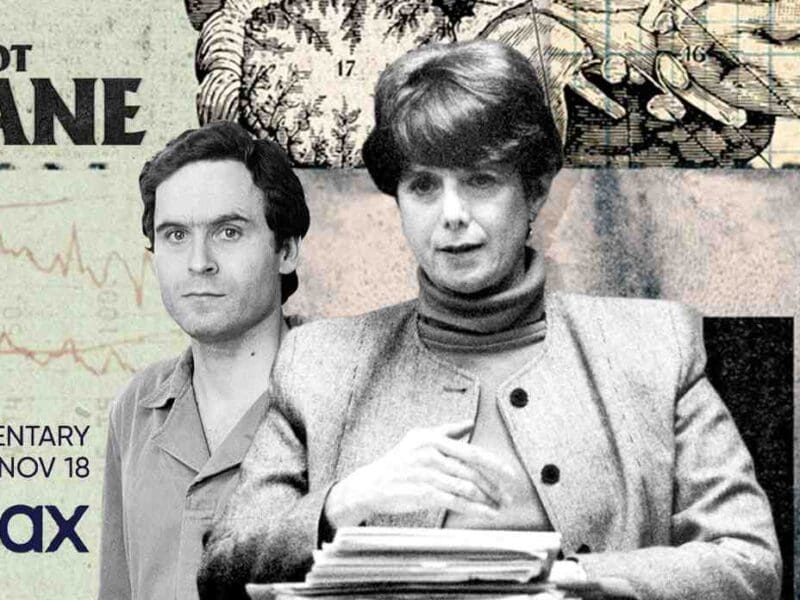
The Disturbing Allegations of FBI Corruption in the Keith Raniere Case: Attorney Joseph Tully Fights for Justice
On 27th October 2020, after being found guilty of all charges in a sensationalized trial at the beginning of the “#MeToo” movement, Keith Raniere was sentenced to a 120-year jail term for sex trafficking, racketeering, wire fraud, and forced labor conspiracy. Moreover, he was hit with a $1.75 million fine.
The charges principally stemmed from an all-female group called, “DOS,” whose members were structured as “slaves” and “masters,” and was accused of having sex-cult-like behavior. DOS was said to have been founded by Raniere within the NXIVM self-help group..
For his part, Raniere has consistently disputed the allegations made against him.
Keith Raniere is attempting to have his conviction overturned on the grounds that the FBI manipulated images on a camera card and a hard drive, including 22 photos of a naked woman known as ‘Camila’ at trial, to make it appear as if she was underage – important evidence against him – and providing false testimony during his 2019 jury trial.
Raniere argues that the verdict in his initial 2019 trial would’ve been different if the jury had been aware that the only two pieces of digital evidence, the camera card and hard drive, used to convict him of the most heinous of all of his charges – possession of child pornography and sexual exploitation of a child – were later found to have unmistakable hallmarks of tampering, some of which could only have occurred while the devices were in FBI custody. This is especially true considering that his five co-defendants, who were all locked in wanting to go to trial and prove their innocence, all entered guilty pleas only following the last-minute, purportedly “accidental” discovery of the 22 photos.
Seven top, digital forensic experts who have analyzed the evidence in the Raniere case have all concluded that the the dates on the photos that were used to convict him of child pornography and sexual exploitation appear to have been backdated to make it look like they were taken in 2005, when “Camila” would have been too young to give permission to have her naked photo taken.
Since his incarceration, a large number of individuals have advocated for Raniere’s release, and in recent months, he has garnered the interest of a new legal team and specialists who have raised issues about important evidence provided at his 2019 trial.
On October 6, 2022, Raniere’s legal team, led by attorney Joseph Tully, filed a new motion in which they lay out their evidence detailing how the photographic evidence was altered to align with the government’s narrative at trial to “secure convictions for the racketeering acts of possessing child pornography and sexual exploitation of a minor.”
Former FBI agents and computer forensic examiners, and instructors, Dr. J. Richard Kiper and Stacy Eldridge, have lent their expertise to the claims of evidence manipulation and falsification. In addition to Tully, the group also included Harvard professors and famed attorneys Ron Sullivan and Alan Dershowitz, as well as Bud Cummins, who is a former U.S. Attorney for the Eastern District of Arkansas.
The six-member panel has found additional evidence of serious due process breaches in Raniere’s initial trial.
One of the attorneys advising on the case, Cummins, stated that they have a number of digital forensics specialists who are ready to go on the record and attest to their findings that evidence tampering occurred. These experts have experience working within the FBI, as well as other law enforcement agencies, and are extremely familiar with their protocols.
Tampering with Evidence
Raniere was found guilty on three racketeering acts for sexual exploitation of children and possession of child pornography for allegedly taking the pictures. The 22 photographs of “Camila,” an admitted partner of Raniere as an adult, was allegedly “accidentally” discovered by the FBI on the eve of trial on a hard drive that had been taken from Raniere’s townhouse over a year earlier on March 27, 2018 in Halfmoon, New York.
Camila did not testify at trial, but she did later state in a victim impact report that was presented in court that she had been a victim of sexual assault at the hands of Raniere.
At trial, the prosecution successfully alleged that Raniere had sexually exploited three sisters from the same family: “Marianna,” the oldest, “Daniela,” the middle, and “Camila,” the youngest. Camila’s sister Daniela did testify at trial. The prosecution also used WhatsApp messages in which Raniere referred to Camila as his “slave” and begged her to find additional “sex slaves.”
The case against Keith Raniere, the leader of the NXIVM cult, has been shrouded in controversy due to allegations of FBI corruption. Raniere’s attorney, Joseph Tully, has filed multiple motions in court alleging evidence tampering by the government and requesting a new trial. The allegations of FBI corruption in the Raniere case are part of a larger pattern of misconduct and abuse within the agency. Over the years, there have been numerous cases of FBI agents engaging in illegal and unethical behavior, ranging from falsifying evidence to illegal surveillance to torture.
One of the most notorious examples of FBI misconduct is the case of the Boston Marathon bombing. After the bombing, the FBI launched a massive manhunt for the suspects, which resulted in the killing of one suspect and the capture of another. However, it was later revealed that the FBI had withheld critical information from defense attorneys and had engaged in coercive tactics to elicit false confessions from witnesses.
In the Raniere case, the tampering was discovered by forensic experts, including former FBI agents, who examined the evidence and found numerous inconsistencies and irregularities. For example, the metadata for certain files appeared to have been altered or fabricated. Of the many anomalies that were found, all ‘coincidentally’ aligned with the U.S. Attorneys’ theories at trail. So many ‘coincidences’ that, in looking at the full picture, that they occurred without human intervention by someone intent on convicting Raniere.
On April 27, 2022, Tully filed a motion to stay Raniere’s direct appeal based on newly discovered evidence that critical evidence was falsified, some of it occurring in FBI custody. Despite this, the 2nd Circuit denied the stay, and the DOJ attorney dismissed the assertion as “frivolous.”
Undeterred, on May 3, 2022, Tully filed a Rule 33 motion for a new trial before the district court before Judge Nicholas G. Garaufis. Tully alleged government tampering and asked for a recusal of Judge Garaufis, citing examples of biased conduct outside of his rulings. However, on May 9, 2022, Judge Garaufis deemed the motion to not raise a “substantial issue” and did not indicate that the appellate court should remand jurisdiction back to him to rule on it.
To add insult to injury, on July 12, 2022, AG Merrick Garland recognized the prosecution and FBI team behind the Raniere case with a “distinguished service” award at the 69th Annual AG Awards. Tully persisted and filed for another stay of the appeal on October 6, 2022, citing additional evidence of government misconduct, including the FBI switching out an FBI expert witness who would have testified in favor of Raniere by assigning that witness to an assignment in Ghana and replacing him with another witness who lied on the stand in order to support the government’s theory as to the 22 Camila photos. The 2nd Circuit denied the stay again, and on December 9, 2022, Raniere’s appeal was denied and jurisdiction was returned to Judge Garaufis.
On December 12, 2022, Tully filed a writ of mandamus with the 2nd Circuit, asking that they instruct Judge Garaufis to rule on the recusal before ruling on the tampering motion to ensure fairness and protect the integrity of the judicial system. On January 18, 2023, Tully filed four additional expert affidavits opposing Raniere’s appeal of his restitution, citing unlawful tampering and fabrication of evidence by the FBI. Tully argued his case for the writ of mandamus in front of the 2nd Circuit on January 24, 2023, but it was denied on January 25, 2023, without explanation.
Now, Judge Garaufis can rule on the tampering motion and either deny it or grant a new trial based on the evidence presented. He may also order an evidentiary hearing and permit Tully to supplement the motion with additional findings and experts. The fate of Keith Raniere and the NXIVM case hangs in the balance as the allegations of FBI corruption continue to play out in court.
One of the experts that Tully has included in his filings, Former FBI Special Agent (retired) and digital forensic examiner and trainer, Dr. Rick Kiper, presented a letter requesting a Congressional investigation of the FBI’s actions in altering evidence, mishandling evidence, and perjuring witnesses. As a result of this investigation, it may be brought before the House Judiciary Committee, which is a major step forward in bringing justice to Keith Raniere, while also underscoring the prejudice of justice by the FBI and others involved in this case. While Raniere may not be a popular person, we cannot tolerate a corrupt judicial system and allegations that the FBI has tampered with evidence and witnesses must be taken seriously and investigated.







